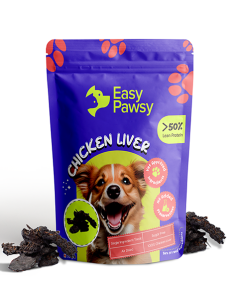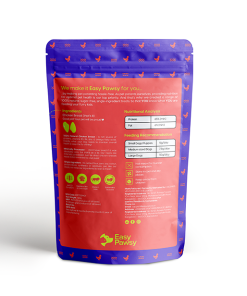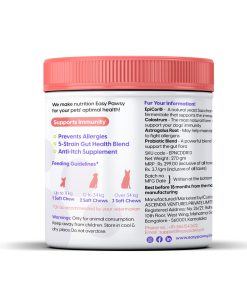All Genders, Dog, Food
Can Dogs Really Be Allergic To Chicken?
Long story short, yes.
Just like us humans, dogs can be allergic to food. And surprisingly, chicken tops the list. But why are dogs allergic to chicken? Let’s explore.
Scientific Evidence
Multiple veterinary medicine researches including The Journal of Small Animal Practice have highlighted food allergies in dogs with protein as the most common allergenic trigger. And Chicken, being a primary protein source in many dog foods, has been identified as a potential allergen.
How Does It Happen?
Proteins are essential nutrients that play a crucial role in maintaining a dog’s overall health and well-being. However, in some cases, proteins can trigger allergic reactions in dogs. When a dog’s immune system identifies certain protein molecules as foreign invaders, it can lead to an allergic response.
Upon subsequent exposure to the same protein, the IgE antibodies trigger the release of histamine and other chemicals. Histamine causes classic allergy symptoms, including itching, inflammation, and other discomforts.
Symptoms of Chicken Allergy in Dogs
Here are some common symptoms to watch out for:
1. Skin Irritation:
Dogs with a chicken allergy may develop skin problems such as itching, redness, hives, or hot spots. Persistent scratching or licking can lead to secondary infections.
2. Gastrointestinal Upsets:
Digestive issues like vomiting, diarrhea, or frequent gas can indicate a possible chicken allergy. These symptoms may result from an adverse immune response to chicken proteins.

3. Ear Infections:
Recurring ear infections, often accompanied by itching and discharge, can be linked to food allergies, including chicken.
4. Chronic Ear and Paw Infections:
Dogs prone to recurrent ear and paw infections might find relief from switching to a hypoallergenic diet that eliminates chicken.
5. Respiratory Symptoms:
In rare cases, dogs may show respiratory signs such as coughing, wheezing, or sneezing due to a chicken allergy.
Addressing Chicken Allergy in Dogs
If you suspect your dog has a chicken allergy, consult a veterinarian for accurate diagnosis and guidance. Allergy testing and dietary trials can help identify the allergen and determine the best course of action.
1. Dietary Modifications
Switching to a hypoallergenic or limited ingredient diet under veterinary supervision can help pinpoint the specific allergen and provide relief from symptoms.
2. Avoidance of Chicken
If chicken allergy is confirmed, ensure your dog’s diet and treats are free from chicken and chicken by-products. Reading ingredient labels carefully is crucial.
3. Supplement Alternatives
To maintain balanced nutrition, explore alternative protein sources such as lamb, fish, or novel proteins like venison.
Understanding the potential for chicken allergies in dogs and taking proactive steps can help your furry companion live a happier, healthier life. After all, a healthy dog is a happy dog!























